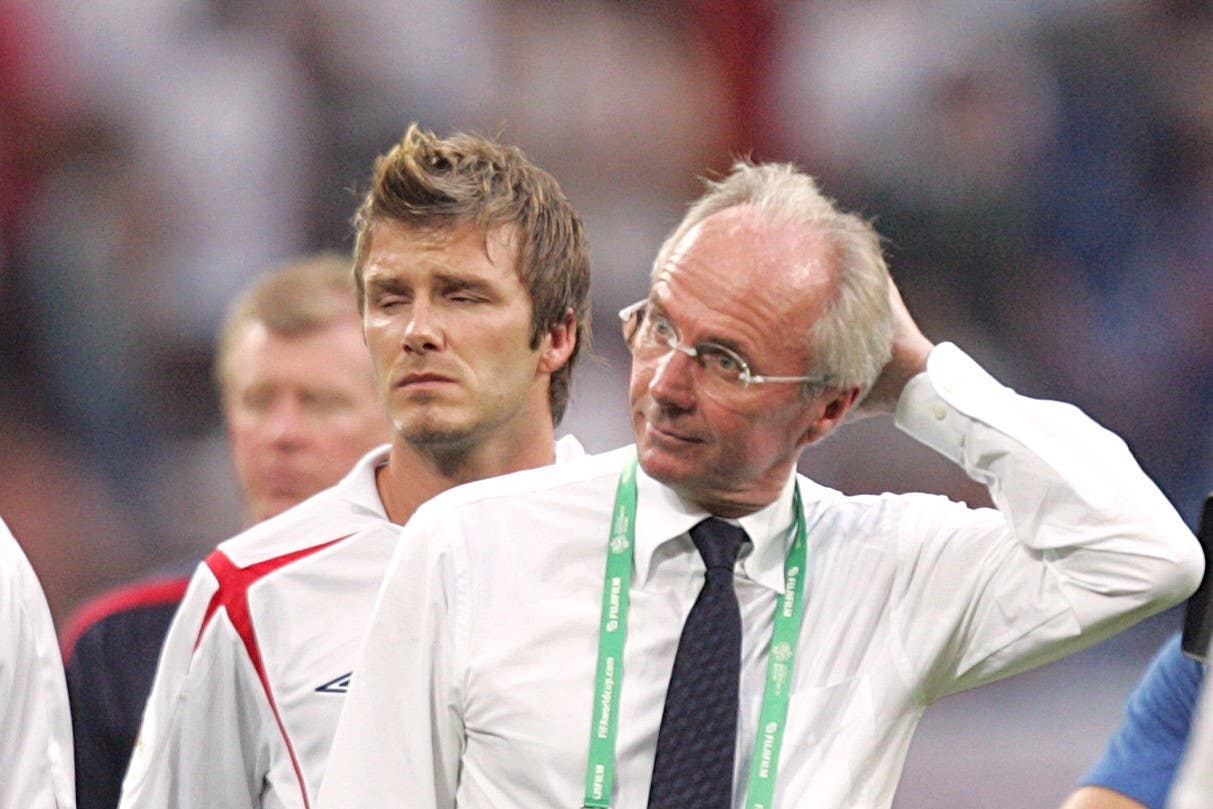Sven-Goran Eriksson questions his decision to leave Lazio for top England job
The Swede has revealed he is suffering from terminal cancer.

Your support helps us to tell the story
From reproductive rights to climate change to Big Tech, The Independent is on the ground when the story is developing. Whether it's investigating the financials of Elon Musk's pro-Trump PAC or producing our latest documentary, 'The A Word', which shines a light on the American women fighting for reproductive rights, we know how important it is to parse out the facts from the messaging.
At such a critical moment in US history, we need reporters on the ground. Your donation allows us to keep sending journalists to speak to both sides of the story.
The Independent is trusted by Americans across the entire political spectrum. And unlike many other quality news outlets, we choose not to lock Americans out of our reporting and analysis with paywalls. We believe quality journalism should be available to everyone, paid for by those who can afford it.
Your support makes all the difference.Sven-Goran Eriksson admitted he harbours some regret at accepting the England manager’s position and believes his reign ended because of a newspaper sting rather than results.
The Swede, who on Thursday revealed he is suffering from terminal cancer, became England’s first foreign-born boss in January 2001 and oversaw their fortunes until the end of the 2006 World Cup.
Months before his appointment, Eriksson led Lazio to their second – and still most recent – Serie A triumph in 1999-2000, having had other successful tenures at clubs in his native Sweden and Portugal.
But Eriksson lacked the Midas touch with England, unable to win a trophy despite the country’s so-called ‘golden generation’, and the 75-year-old wishes on occasion he had remained in Italy.
In a wide-ranging interview with Swedish Radio P1, where he disclosed his pancreatic cancer diagnosis, Eriksson said: “It was a fantastic life (in Italy). I thoroughly enjoyed it.
“But one day, I got a telephone call from England and I took the decision. It has crossed my mind whether it was the right choice. Maybe I should have stayed in Lazio where I was celebrated as a king?
“The only job I could imagine taking is as the manager of England. Because that’s the biggest there is.
“At some points, it’s hit me that there are a lot fewer games. It is a lot harder to win something when you go to a national side. You can win something every fourth year. That’s a big difference.”
One day, I got a telephone call from England and I took the decision. It has crossed my mind whether it was the right choice. Maybe I should have stayed in Lazio where I was celebrated as a king?
The likes of David Beckham, Michael Owen, Steven Gerrard, Rio Ferdinand and Wayne Rooney thrived at club level in the early-to-mid-2000s but struggled to repeat that form on the international stage.
England exited both the 2002 and 2006 World Cups as well as Euro 2004 at the quarter-final stage, the latter two tournaments knocked out by Portugal on penalties.
However, a few months before the 2006 World Cup, it was announced Eriksson would step down with England following the end of the tournament despite having two more years left on his contract.
This was shortly after a story by the News of the World, where an undercover reporter posed as a rich Arab investor and recorded Eriksson suggesting he would be prepared to become Aston Villa boss.
Eriksson added: “It was a shock the first time we started seeing stories on the front page of the newspaper.
“Football’s on the back page in England normally and I was on the back page, but then I was on the front page as well. That was really unnecessary, really.
“The English press was not something you messed around with. They didn’t care if something was true or not. That was the big negative thing about England, that part of the press. The football press was OK.
“I was fired from England because of the fake sheikh, not because of results, and that angered me quite a lot at the time.”